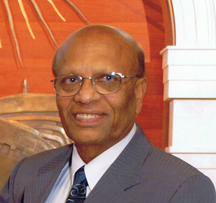Himsa caused by humans creates a large and vast landscape and is done in many shapes and forms, with or without motives. It encompasses himsa committed for basic bodily needs for food, clothing, shelter, and medicine, secondary needs and desires for physical beauty, for sports and entertainment, for furnishings, for transportation, for societal and religious customs, and stemming from ego, anger, hatred, greed, control, power, and dominance over others.
Likewise, the practice of ahimsa applies to practices regarding our food, clothing, furnishings, medicines, sports, entertainments, decisions made regarding gender, race, and species relations, interpersonal relations, and practices around business, investments, professions, faith traditions, viewpoints on the world, and regarding the environment.
If one is striving to be an ahimsak, he needs to be aware of whether, in satisfying his personal needs, he is involved in actions that lead to the suffering of any humans, animals, birds, fish, or insects. Specifically, when he eats and drinks, he needs to know if the items he consumes contain or are derived from animals, insects, meat, fish, milk, or eggs. He also needs to ascertain whether his clothing or footwear is made of silk, wool, leather, or fur, and whether his cosmetic and personal hygiene products involved animal experimentation or contain animal products. He must find out whether his home furnishings and flooring materials were made using child labor, sweatshops, or animal products (skins, fur, tusks, horns, antlers or bones from animals, or feathers from birds).
Additionally, he needs to know whether the medicine he takes and the delivery system and personnel who provide the medicine were involved in the use of animals and plants. Does he have firearms in his home? Is his car or boat furnished with leather, silk, or fur? What about his wallet or handbag? Does he hunt, shoot, or fish? Does he attend cockfights or bullfights, dog racing or horse racing events? Does he go to the circus or the zoo?
Similarly, an ahimsak must ask: How many miles per gallon does his car get? How much pollution does his company discharge into the air, land, and water? Does he use chemicals on his lawn? Does he buy organic produce? How much paper does he use? How often does he use trains, airplanes, and other fuel-guzzling forms of transport?
Does he participate in animal sacrifice, in the stoning of humans or animals? Does he smoke cigarettes or cigars?
The ahimsak must examine all his relationships, direct and indirect. He asks whether he is involved in any form of discrimination, racial profiling, unjust and discriminatory laws and regulations, in apartheid or slavery or untouchability, in crimes, terrorism, riots, unjust wars or any other conflicts. He looks at his investments, to see if he is profiting from the exploitation of humans or animals, in the destruction of the environment, or in activities that endanger human health and safety.
He considers all aspects of his personal life and family life, his religious life, his business and social life. He asks whether he is involved in any religious intolerance, whether he possesses anything that by law belongs to another, whether his workplace supports discrimination based on sex, gender, skin color, ethnicity, religion, beliefs, age, size, or disability. He evaluates his company’s hiring and firing policies, its promotions and demotions, and compensation and rewards policies.

In short, one who follows ahimsa leaves no stone unturned in the pursuit of love, respect and compassion for all, in thought, speech, and actions. Ahimsa eliminates all forms of hatred, malice, and jealously. It welcomes all with equality and equanimity. It is free of ego, anger, greed, deceit, and hypocrisy. It results in relaxation, joy, tranquility, and inner peace.
To aid in this multi-faced and close examination of the possibilities for himsa in their daily lives, many Jains observe the ritual known as Pratikraman. Some Jains practice this daily and some only a few times a year. During Paryushana and Das Laxan (during holy days, Jains observe over a period of eighteen day between August and September time), Pratikraman is a must for both Svetambaras and Digambaras.
Pratikraman is a systematic and thoughtful process designed to focus on one’s life (over the past twenty-four hours, six months, a year, or whatever period of time is the subject of reflection) and to engage in an honest self-assessment of what, where, and when acts of himsa have been committed. In this process, the aspirant recounts, reflects and repents of his actions of himsa and asks for forgiveness from those who have been harmed. He also takes a vow to not repeat the himsa or engage in further himsa. The Pratikraman Sutras include the following eighteen ways himsa can be committed. By reflecting on these eighteen papas (acts of himsa), one is then on a path to minimize himsa in one’s life.
The eighteen papas (acts of himsa) include: violence, lying, stealing, sensuous indulgence, accumulation, anger, ego, deceit, greed, attachment, resentment, disputation, making false allegations, talking behind the backs of others, affection and disaffection, gossiping, lying, and wrongful perception.
Please note that:
- All eighteen papas reflect various kinds of himsa,
- Nearly all of the twelve varatas (vows) of shravaks (lay followers) deal with avoiding or not doing himsa, and are also about practices that promote nirjara (shedding) of already accumulated karmas
- The seventh Agama of Jains (a holy scripture), which describes the life histories of ten prominent sharavaks of Mahavir Bhagwan, is mostly concerned with himsa and ahimsa,
- Vigai, as a varat, forbids all dairy products, and
- All ten laxan (virtues) dharma of Digambra Jains are based on ahimsa.
Finally, the Acaranga Sutra, which forms the basis of law and conduct for all Jains, “condemns himsa by saying that its operation is without any stop, cessation and discontinuance and it goes on increasing to the extent possible with the political consequence that the race of armaments becomes impossible to arrest and continues to grow without any check.”
 Dr. Sulekh Chand Jain
Dr. Sulekh Chand Jain
